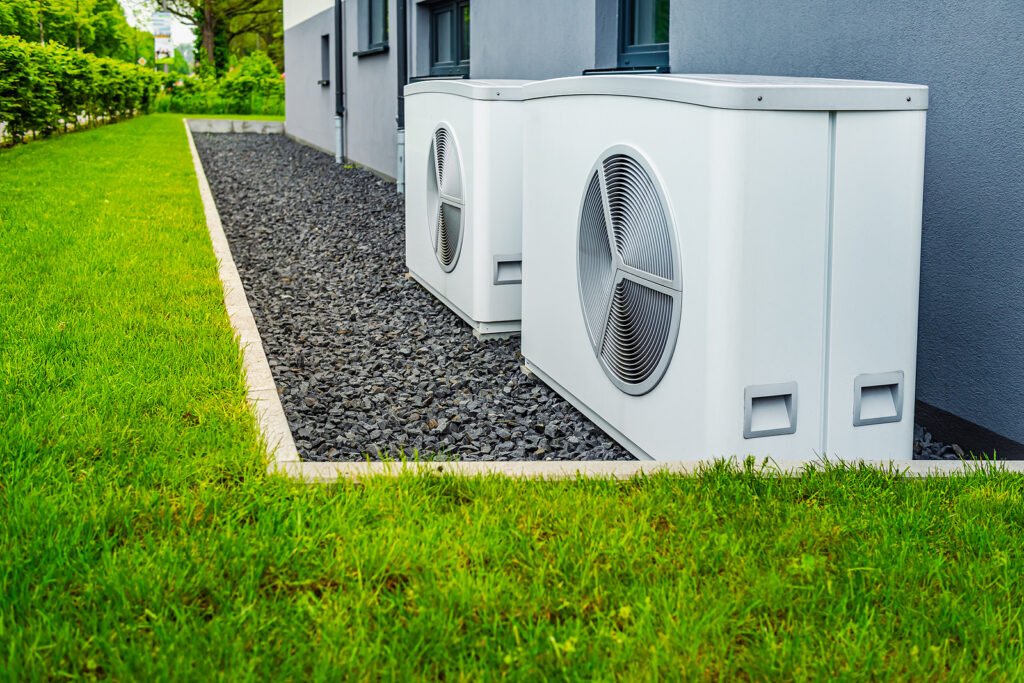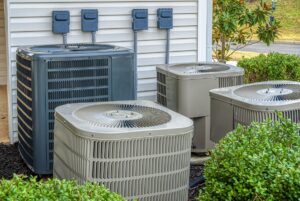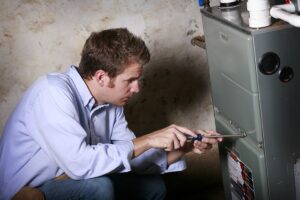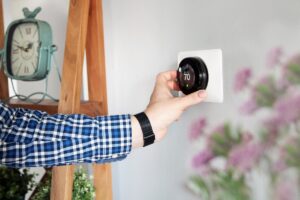The job of your HVAC system is to keep your home or business comfortable while also keeping energy costs low. But sometimes, due to age or mechanical issues, it may fail to fulfill these expectations. This places you in a position where you must choose between repairing the ailing system or replacing it with a new, more efficient brand.

When it comes to repairing an old HVAC system or replacing it with a new one, which option is cheaper? In this article, we explore the pros and cons of both choices to help you make the best decision for your home and budget.
HVAC Repair vs. Replacement
Deciding whether to repair your old HVAC system or purchase a new one can be difficult, especially if you’re on a budget. However, by assessing your current unit and considering factors like age, energy efficiency, health benefits, and noise levels, you can make an informed decision that will save you money in the long run and keep your home safe and comfortable.
Your HVAC System is no Longer Energy Efficient
If your monthly energy bills have increased substantially while your HVAC system is not working properly, it may be time to consider a replacement. A new HVAC system can be more efficient and cost-effective compared to an old one, resulting in lower energy bills over time. As a result, if your energy bills keep going up even though your system is working, investing in a new one may be the best option.
Additionally, the newer systems are much quieter than their predecessors and can make for improved air quality in your home. If you’re unsure if your HVAC system is responsible for your growing energy costs, you may want to consult an HVAC professional for advice.
Repairing Your Old HVAC System
If your current HVAC system is still relatively new and you’re only facing minor problems such as faulty wiring or clogged filters, it’s often more cost-effective to repair the problem than replace the entire system. However, if the issue is more extensive or requires major replacements like a new compressor, it may be more cost-effective to replace the unit instead. As with any repair job, be sure to consult an HVAC professional for advice and an estimate before making a decision.
You Have an Old HVAC System
Is your HVAC system more than 10 years old? If the answer is yes, it may be time to consider replacing the entire unit. While older systems may still work properly, they are not energy-efficient and will cost you more in electricity bills over time. Replacing an old HVAC system with a newer, more efficient one can help reduce your monthly energy costs significantly. In addition, newer systems have more features like programmable thermostats and zoned heating and cooling, which can help make your home more comfortable at less cost.
Your HVAC System Makes Too Much Noise
When you shut your doors and windows while using your HVAC system, you expect to have a quiet and peaceful space. But if you’re unable to achieve this due to the noise from your HVAC system, it may be time to replace it. Even if the unit is still fairly new, a noisy system could be a sign of bigger problems that require expensive professional repair or even replacement. If you’re constantly having to adjust the thermostat due to excessive noise coming from your HVAC system, replacing it with a new one may be the best option.
Humidity Issues
Is your home’s indoor air too dry during the winter and too humid during the summer? If so, your HVAC system may not be working properly and could be contributing to excess humidity levels. Investing in a dehumidifier or humidifier can help reduce air moisture levels but if the issue persists, you may need to replace your old system with a newer, more efficient one.
Short Cycling
When your HVAC system frequently turns on and off without reaching the desired temperature, it may be short cycling. This can happen for a variety of reasons such as faulty wiring, clogged filters, or even an oversized unit. If you’re having this problem, repairing or replacing the unit may be necessary in order to restore proper function. Consulting an HVAC professional can help you determine the best solution for your home. To avoid short cycling you should always contact an HVAC contractor before purchasing a new air conditioning and heating unit.
Conclusion
In conclusion, repairing an old HVAC system or investing in a new one can be a difficult decision to make. If your current system is more than 10 years old and you’re experiencing energy bills that are higher than usual, replacing the entire unit may be the best option. On the other hand, if your system is still relatively new and you’re only facing minor problems, repairing it may be the better choice. Regardless of which option you choose, seeking professional advice from a licensed HVAC contractor like Robert B. Payne will help make sure your home remains comfortable while also keeping energy costs low.
Choose The Best Option by Contacting The Experts at Robert B. Payne
No matter what issue you’re facing with your HVAC system, it’s important to consider both repair and replacement options carefully. With the information provided in this article, we hope you can make the most informed decision when it comes to repairing vs. replacing your HVAC system. If you have further questions or concerns regarding your HVAC system, the experts at Robert B. Payne are here to help. Contact us today at 540-373-5876 for a consultation and let us assist you in finding the best solution for your home and budget. With our reliable services, you can be sure that your home will remain comfortable and energy-efficient without breaking the bank.






